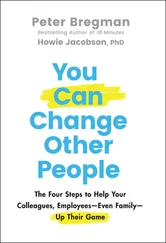Already her thoughts were unlike any she’d had before. They flew at her. In her previous, comfortable life she would reason her way to a conclusion, which meant that she could be reasoned out of it in time as well. The motorcycle hadn’t really been necessary. There were other ways of making her conformable. .
Comfortable and Conformable — her middle names. Esme C. C. Nussbaum. Always a word-monger, an anagramatiser, a palindromaniac, she now saw words three-dimensionally in her sleep. Comfortable and Conformable cavorted lewdly on the ceiling of her unconsciousness, pressing their podgy bellies together like middle-aged lovers, blowing into each other’s ears, two becoming one. She smiled inside herself. It really was a pleasure lying here, waiting for what words would get up to next, what thoughts would come whooshing at her. She liked being the subject of their discussions. It was like listening in to gossip about herself. No, she wasn’t as Comfortable or Conformable as she blamed herself for being, was the latest revelation. If she’d been that easy to get on with, what was she doing here, lying in a coma, half dead? She must have put the wind up someone. That was one of the most persistent of her winged thoughts: people frighten easily. Another was: people — ordinary people, people you think you know and like — want to kill you.
She was not herself frightened when such thoughts flew at her. She had once watched an old horror film with her parents about a blonde woman being attacked by birds. They had been terrified as a family. They put their hands over their faces as the birds dive-bombed everyone in the blonde’s vicinity. ‘Avenging some great but never to be disclosed wrong,’ her father said. But lying flat with thoughts flying at her was not like that. She didn’t feel assailed. There was no more they could do to her — that partly explained her calm acceptance of their presence, even when they swooped so low she might justifiably have worried for her eyes. But it was more than being beyond terror. She welcomed their violence. It was Conformable with how she felt. They were thoughts , after all, which meant they originated in her. If this was herself massing above her, screeching, well then. . she extended all the hospitality she had to offer. It was about time. A good time, yes, in that she had bags of it to give; but about time in the sense that she had wasted too much of it thinking thoughts that were less. . less what? How nice it was having all the time in the world to find the right word. Less. . less. . Esme Nussbaum knew more words than was good for her. She had been the school Scrabble champion; she could finish a crossword while others were still on the first clue; she knew words even her teachers thought did not exist. Now she raided her store for a word that had bird in it, that sounded avian, an av word. Avirulent had a ring, but it meant the opposite of what she needed it to mean. She didn’t want to lose the virulence, she wanted to store it. Avile was good — to avile, as she’d had to explain to a sceptical Scrabble opponent in the quarter-finals, meaning to make vile, to debase. But there was no adjective to go with it that she knew of. No avilious. And no noun, no aviliousness. Had there been, then aviliousness was exactly the quality her previous, unwinged thoughts had lacked. They had been too moderate. Too sparing. Yes, she had presented a report, for which they’d killed her — in intention, if not in fact — that spoke of the persistent rage she’d found in the course of monitoring the nation’s mood. She had not tried to sugar that pill. We cannot, she had argued, glide over the past with an IF. We must confront WHAT HAPPENED, not to apportion blame — it was too late for that, anyway — but to know what it was and why time hadn’t healed it. Yes, she had stood her ground, said what had to be said, done her best to persuade the IFFERS with whom she worked, but that best wasn’t good enough. She hadn’t followed the logic of her own findings. She had been insufficiently avilious. She hadn’t made vile, that’s to say she hadn’t grasped, hadn’t penetrated and presented, even to herself, the vileness of what had been done. Not WHAT HAD HAPPENED but WHAT HAD BEEN DONE.
Ah, but had she gone that far they would have had her run over a second and, if need be, a third time.
Were they that ruthless? Ruthless was not the word Esme Nussbaum would have picked. They were acting out of the best motives. They wanted a harmonious society. Their mistake was not to see that she wanted a harmonious society too. The difference was that they saw harmony as something you attained by leaving things out — contrariety and contradiction, argument, variety — and she saw it as something you achieved by keeping everything in.
Though she had limited access to information that others didn’t, she had done no original research into the terrible events which those who did not see as she saw wanted to disown. Research, she thought, had not been necessary. She knew the events to have been terrible simply by their effects. Had they been of less consequence then the aftermath would have been of less consequence too. But the aftermath, of which she too, lying here smashed into tiny pieces, was the bloody proof, brooked no controversy. They could mow her down as often as they liked — and she bore them no malice for it; on the contrary she owed this long reflective holiday to them — but the truth remained the truth. Anger and unhappiness seeped out from under every doorway of every house in every town and every village in the country. Housewives threw open their windows each morning to let out the fumes of unmotivated domestic fury that had built up overnight. Men spat bile into their beer glasses, abused strangers, beat their own children, committed acts of medieval violence on their wives, or on women who weren’t their wives, that no amount of sexual frustration or jealousy could explain.
Now that she had the leisure to think, Esme Nussbaum was no longer looking for explanations. You only need an explanation where there’s a mystery, and there was no mystery. How could it have worked out otherwise? You can’t have a poisoned stomach and a sweet breath. You can’t lop off a limb and expect you will be whole. You can’t rob and not make someone the poorer, and when it’s yourself that you rob then it’s yourself you impoverish.
Of the thoughts that flew at her, as the weeks passed, this last was the most persistent, skimming her cheek with its quilled wing, as though it wanted to scratch her into waking — we are the poorer by what we took away .
But she was in no rush to come out of her coma where it was warm and silent — she only saw words, she didn’t hear them — and declare what she knew. She had no more reports to write just yet. It was good to look at the world slowly and evenly. You don’t need to have your eyes open to see things.
ii
Her father blamed her.
‘She couldn’t have been looking where she was going,’ he said.
‘Esme always looks where she’s going,’ his wife replied.
‘Then if it wasn’t an accident. .’
‘It wasn’t an accident.’
‘OK, if you say so, it wasn’t an accident. In that case someone must have had it in for her.’
‘You don’t say.’
‘The question is—’
‘I don’t want to hear that question.’
‘The question is what had she done wrong.’
‘Your own daughter! How dare you?’
He gave a foolish, thwarted laugh, that was more like a belch. He was a near-sighted, jeering man with a hiatus hernia. ‘It feels as though something’s balled-up in my chest all the time,’ he complained to his doctor who recommended Mylanta or Lanzaprozole or Maldroxal Plus or Basaljel or Ranitidine. He took them all but felt no better.
Читать дальше












